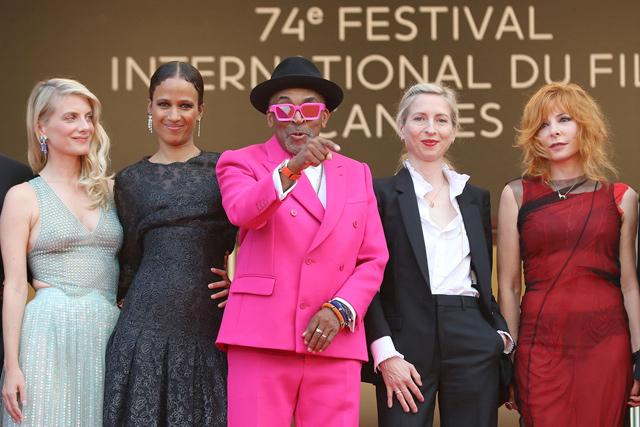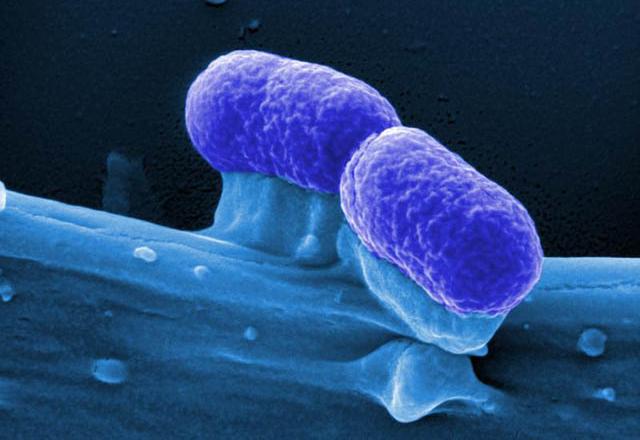You are here
From cancer-battling bacteria to life on Mars at TED
By AFP - Mar 17,2015 - Last updated at Mar 17,2015
VANCOUVER — Brilliant minds wrapped around heady notions ranging from injecting medicine by laser to cherishing life on Earth while seeking a future in the stars as the TED conference began Monday.
The weeklong annual gathering known for blending innovation, inspiration and imagination kicked off with presentations by fresh young visionaries brought in as Fellows.
Videos of Fellows “talks” available online at Ted.com have been viewed more than 71 million times since the programme was launched in 2009, according to TED Fellows director Tom Rielly.
Fellows took the stage in rapid-fire succession on Monday, opening with synthetic biologist Tal Danino describe work to train bacteria to attack cancer cells and ending with Kristen Marhaver revealing promising progress bringing precious coral reefs back to life.
“There are more bacteria in our bodies than stars in our entire galaxy,” Danino said during his talk.
“Today, we can programme these bacteria like we programme computers.”
Research showed the potential for programmed bacteria to grow naturally in the liver, signal discovery of tumours and even produce chemicals to shrink them, according to Danino.
“Imagine, in the future, taking a programmed probiotic that could detect and treat cancer as well as other diseases,” he told the audience.
Tipping point
Fellow Lucianne Walkowicz, an astronomer and artist, worried that thoughts of finding planets outside this solar system with the potential to support human life may be diverting attention from passionately striving to keep Earth blissfully habitable.
“We are at a tipping point in human history; a species poised between gaining the stars and losing the planet we call home,” Walkowicz said.
“It is hubris to believe that interplanetary colonisation alone will save us from ourselves.”
The more she looks for habitable planets, the more she appreciates what the Earth has to offer.
Landmine rats
Biologist and TED Fellow Danielle Lee was doing her part to make the world safer as part of a project aimed at training the African pouch rat to sniff out landmines.
The rats are easy to care for, eat nearly anything, live as long as eight years, and can find buried landmines in much the same way dogs can use scent to detect hidden drugs, according to Lee.
“Pouch rats scratch at the ground to signal a find, but are too light to detonate devices,” Lee said.
“And, unlike dogs, they don’t attach to their handlers.”
Rats work for treats and aren’t concerned who they are working for. Lee’s focus is to pinpoint ideal rats for the job and help them multiply.
Laser-targeted medicine
For Fellow Patience Mthunzi of Africa, TED was a chance to share effort to use lasers to deliver HIV/AIDS medicine directly to targeted cells as a more direct and effective method than swallowing doses.
Her test, in a lab thus far, involve bathing cells in medicine and then using laser flashes to punch tiny holes that let the drug slip in before quickly resealing.
“The goal is to get the technology applied to the human body,” Mthunzi said.
During the session, neuroscientist fellow Greg Gage and co-founder of start-up Backyard Brains used human-to-human interface gear to let a woman from the audience use her mind to control the arm of a man from the audience.
Another fellow described a quantum computer he was building that could be powerful enough to crack even the current gold-standard in data encryption.
TED’s first fellow from Vietnam shared how she and friends figured out a way farmers could make money by growing edible mushrooms in left-over rice straw that is typically burned, causing pollution.
“With mushrooms, we could clean the air, add income to rice farmers and grow healthy food,” said Trang Tran.
“I hope this will inspire you to eat more mushroom as a super-food. Dare to go far by going green, it is possible.”
The fellows session marked the start of a week of TED talks, recorded version of which have won a global following, centred on ideas worth spreading. Speakers this year include longtime “tedster” and Microsoft co-founder Bill Gates along with former Australian prime minister Kevin Rudd.
Related Articles
SIEM REAP, Cambodia — Pit, only two and with just one eye, needed only 11 minutes before he detected a deadly mine buried in a Cambodian fie
While stars were allowed to walk the red carpet without masks, there was a strict no-kissing rule, but this was flaunted almost immediately as they started strutting up Cannes’ fabled staircase to the festival palace.
Pampering leafcutter ants with fragrant rose petals and fresh oranges may seem an unlikely way to rescue modern medicine, but scientists at a lab in eastern England think it’s well worth trying.

















